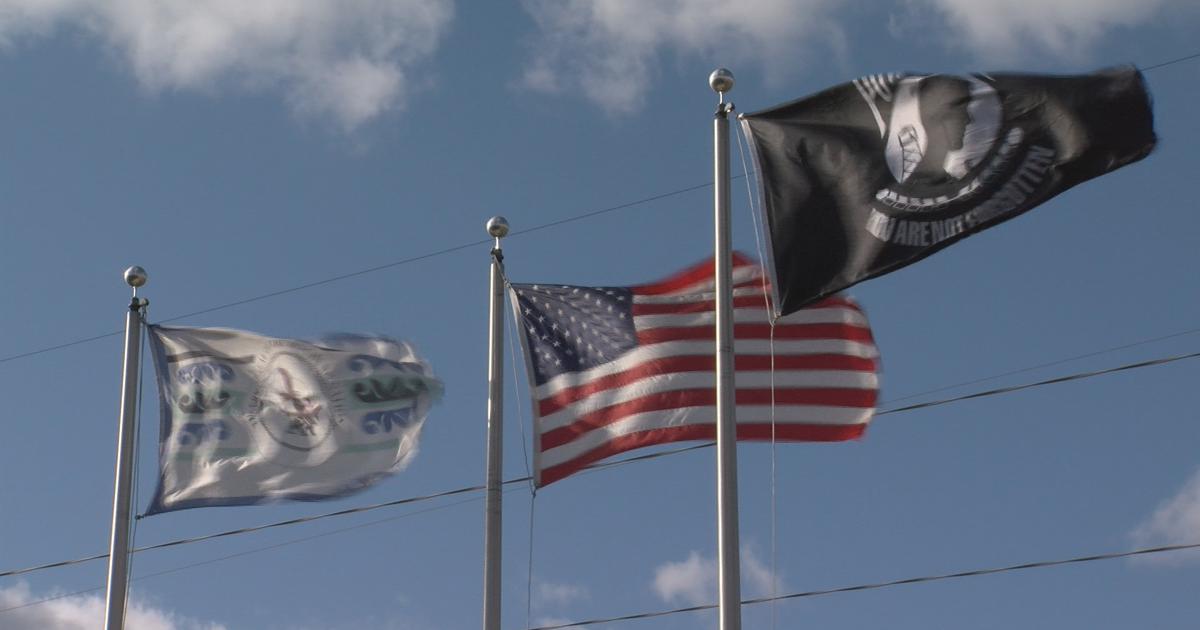Indigenous tribes discuss solutions to climate change, preserving traditions
Indigenous tribes across Wisconsin are finding ways to adapt to climate change while also preserving the traditions they hold closest to their hearts. Indigenous tribes across Wisconsin are discussing ways to adapt to climate change while preserving their traditions. Ryan Greendeer, executive government relations officer for the Ho-Chunk Nation, said the land his ancestors grew up on is changing fast, and that this means they need to adapt even faster. He expressed concern about the potential for tamarack trees to stop growing, which he fears will stop building their ciiporoke, a housing structure used in the Teejop area, which is used for cooking, ceremonies, or community gatherings. Greendeeer also expressed concern over the future of black ash baskets, which are also about to end due to the emerald ash borer infestation. Christopher Peguero from the Menominee Tribe of Wisconsin said that climate change impacts other aspects of the Menoinee tribes' health and livelihoods.

Published : 4 weeks ago by Grace Houdek in Environment
DANE COUNTY, Wis. (WKOW) -- Indigenous tribes across Wisconsin are finding ways to adapt to climate change while also preserving the traditions they hold closest to their hearts.
Ryan Greendeer is the executive government relations officer for the Ho-Chunk Nation. After serving time in the military and spending several years away from Wisconsin, he said coming back was an easy decision.
"It's definitely one of the best places to live, right here in Wisconsin," Greendeer said. "Helping out with the tribe, and being around people, the Ho-Chunk Nation is really helpful for the soul as well."
But Greendeer says the land he grew up on is changing fast and that means members of the Ho-Chunk Nation need to adapt even faster. He points out the clothes he's wearing, saying the shoes on his feet and hat on his head would not have been a clothing product a couple hundred years ago.
"We know that we have to adapt," he said. "It's just how we do that the speed that we have to is really changing these days."
Greendeer said just this year alone has shown how fast the weather can change, and how uncertain it can be.
"We've seen 70 degree days and we've seen 20 or 30 degree days after that. We've seen snowfall and then we've seen sunshine," he said.
He said some of the traditions he grew up hearing stories about are nearly extinct. Greendeer said he's fearful the same will happen to other traditions that mean so much to the Ho-Chunk culture.
"As climate change happens, one of the things I'm worried about is tamarack trees no longer growing. If that happens, we're no longer going to be able to build our ciiporoke where we hold our traditions."
According to the University of Wisconsin-Madison, the ciiporoke is the "standard housing structure used in the Teejop area." Ciiporoke's are built in different sizes depending on the use, whether that be for cooking, ceremonies or community gatherings.
The Ho-Chunk's entire history of black ash baskets is also about to come to an end. Greendeer said there no more black ashes that can grow without being affected by the emerald ash borer.
But how the Ho-Chunk Nation grows its food is the same way it grows its people. And that too is being affected by climate change.
"We're worried about drought and we know how that can affect the food scarcity issues that the entire world faces," Greendeer said.
At the same time, more frequent floodwaters are making agricultural land less usable.
"The amount of land base that is available for things like food, things like housing, the real needs of life is being diminished," he said.
Discussions to find a solution have been happening but Christopher Peguero with the Menominee Tribe of Wisconsin said there has not been a real open seat for Indigenous perspective on what those solutions are.
He said one approach to a solution is a collective approach.
"Climate science and climate solutions are very complex. So all people really need to be at the table, and really have an equal say on what the solutions are," Peguero said. "We are so closely tied to our environment and to our natural world, we tend to be at the frontlines of those climate impacts."
Peguero uses last summer as an example of that.
"We had a really smoky summer. We tend to have higher incidence of asthma rates within indigenous populations and our communities are really impacted by that. So I think we have a stake in finding a solution," he said.
But Peguero said climate change impacts other aspects of the Menominee tribes' health. He said the drier and the hotter conditions impact traditions like fishing and hunting, which is their diet.
"Black and brown people in the United States generally, typically are closest to our environmental problems and climate is another piece of that puzzle. And then that can impact our health outcomes, ultimately. So it's all tied together," he said.
Those hot and dry conditions also affect their forests which in turn impacts of their economy.
"The more that we can, again, think about climate solutions from a collective approach and making sure that folks that have not had significant access to bring the perspective to those solutions is critically important," Peguero said.
If we take care of the environment, Greendeer says it will take care of us.
"Nature in the landscape environment that we are in is able to provide everything that we need to survive," Greendeer said.
Topics: Climate Change, ESG
